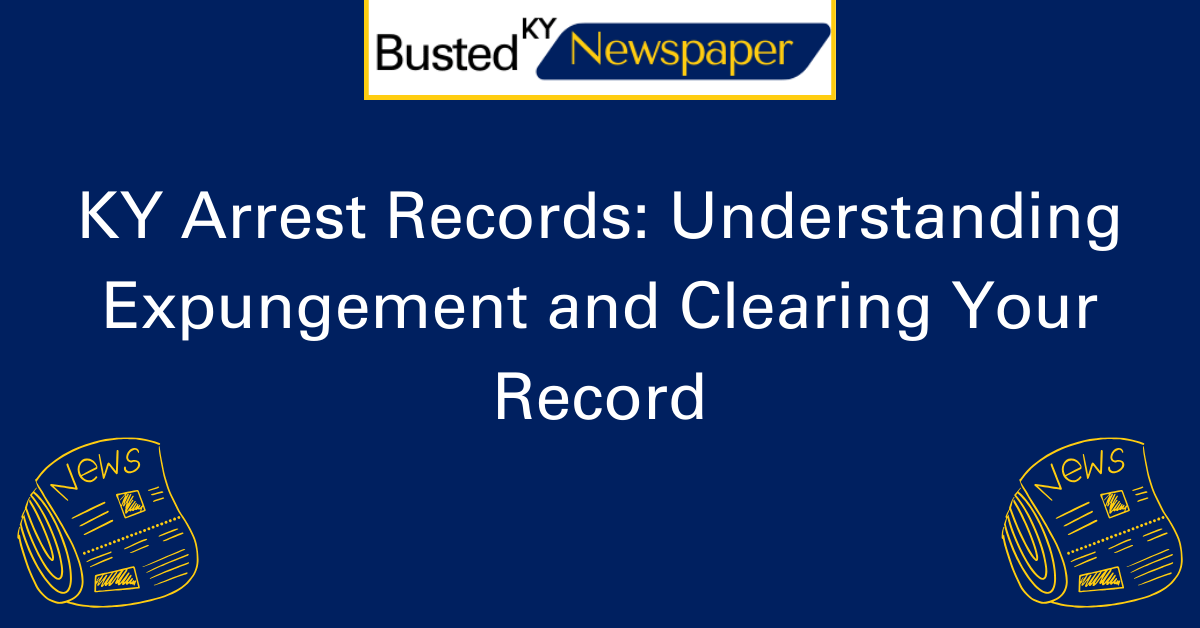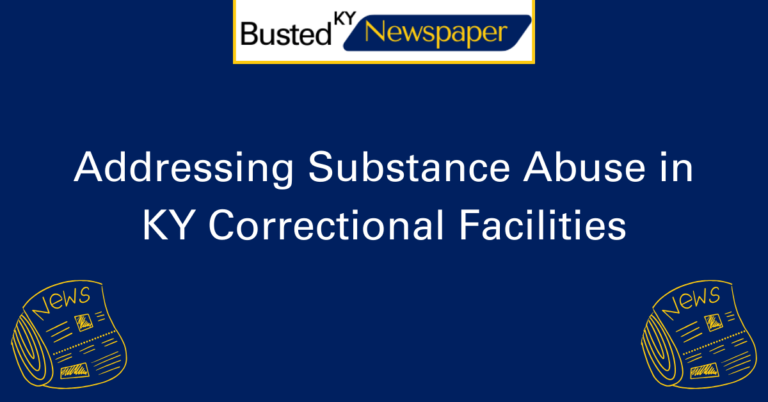KY Arrest Records: Expungement and Clearing Your Record
In this Comprehensive Guide, we delve into the complex world of Kentucky arrest records, focusing on the crucial process of expungement and how it can help individuals clear their records. Whether you’re a resident of Kentucky or simply curious about the expungement process, this guide aims to provide you with the necessary information to navigate through this legal procedure.
From explaining the concept of expungement to detailing the eligibility criteria, we break down the steps involved and provide valuable insights into the benefits and limitations of clearing your record. With a reader-friendly tone and comprehensive content, this guide aims to cater to individuals with varying levels of legal proficiency, making it accessible to anyone seeking to understand and take action regarding their arrest records.
Understanding Expungement: A Path to a Clean Record
Expungement is a legal process that allows individuals to clear their arrest records, providing them with a fresh start. In this section, we will explore the concept of expungement in Kentucky and its importance in helping individuals move forward with their lives.
Eligibility Criteria: Who Qualifies for Expungement
Not everyone is eligible for expungement in Kentucky. It is essential to understand the eligibility criteria before starting the expungement process. In this section, we will discuss the factors that determine whether an individual qualifies for expungement or not.
The Expungement Process: Step-by-Step Guide
Navigating through the expungement process can be complex and overwhelming. To make it easier for you, we have broken down the steps involved in expunging your arrest record. From gathering the necessary documents to filing the petition, this section will provide you with a comprehensive guide to successfully expunging your record.
Benefits of Expungement: A New Lease on Life
Expungement offers numerous benefits to individuals with a criminal record. In this section, we will highlight the advantages of clearing your record, including increased employment opportunities, improved housing prospects, and the restoration of personal and professional relationships.
Limitations of Expungement: Understanding the Boundaries
While expungement can be a life-changing process, it is crucial to be aware of its limitations. This section will delve into the restrictions and exceptions associated with expungement, ensuring that you have a realistic understanding of what expungement can and cannot achieve.
Take Action: Empowering Yourself Through Expungement
Now that you have a solid understanding of expungement in Kentucky, it’s time to take action. In this section, we will provide you with resources and guidance to help you initiate the expungement process. Whether you choose to work with an attorney or file the petition yourself, we are here to support you every step of the way.
FAQ’s
What is expungement?
Expungement refers to the legal process of sealing or erasing criminal records, essentially removing them from public view. This mechanism provides individuals with the opportunity to start anew after being involved in the criminal justice system. Once a record is expunged, it is typically treated as if it never existed, offering individuals a chance to rebuild their lives without the stigma associated with a criminal history. Expungement laws and procedures vary by jurisdiction, and they are designed to strike a balance between public safety concerns and the rehabilitation of offenders.
Who is eligible for expungement in Kentucky?
In Kentucky, eligibility for expungement depends on various factors, including the type of offense, the severity of the crime, and the time that has passed since the completion of the sentence. Generally, non-violent offenses may have a higher chance of being expunged compared to violent crimes. Eligibility criteria may also consider an individual’s overall criminal history. It’s crucial to consult the specific laws and regulations of the state to determine eligibility accurately. Legal assistance from an attorney can be valuable in understanding one’s eligibility and navigating the expungement process effectively.
How does the expungement process work?
The expungement process in Kentucky typically involves filing a petition with the court that handled the original case. The petitioner must provide detailed information about the case, including the charges, the date of conviction, and other relevant details. Additionally, certain supporting documents may be required. The court will then review the petition, and if the individual meets the eligibility criteria, a hearing may be scheduled. During the hearing, the court will consider factors such as the nature of the offense, the individual’s criminal history, and any objections from the prosecutor or other parties. If the court approves the expungement, the records are sealed or destroyed, providing the individual with a fresh start.
What are the benefits of expungement?
Expungement offers several significant benefits to individuals seeking to move forward after a criminal conviction. One of the primary advantages is the ability to improve employment prospects. With a clean record, individuals may find it easier to secure jobs and housing, as many employers and landlords conduct background checks. Expungement also restores certain civil rights, such as the right to vote and serve on a jury, which may have been restricted due to the criminal conviction. Furthermore, it allows individuals to escape the social stigma associated with a criminal record, fostering a greater sense of societal reintegration and rehabilitation.
Are there any limitations to expungement?
While expungement provides an invaluable opportunity for a fresh start, it is essential to be aware of its limitations. Expungement does not erase the criminal record, as certain government agencies may still have access to sealed records for specific purposes. Law enforcement and criminal justice agencies may retain information for internal use, and in some cases, the expunged records may be accessible in certain legal proceedings. Additionally, expungement does not apply to all criminal offenses, with more serious crimes often excluded from the expungement process. It is crucial for individuals considering expungement to understand the specific limitations and nuances in their jurisdiction.
How long does the expungement process take?
Conclusion
Expunging your arrest record can be a transformative experience, allowing you to leave past mistakes behind and embrace a brighter future. In this final section, we will summarize the key points discussed throughout this guide and emphasize the importance of taking control of your record through the power of expungement.







